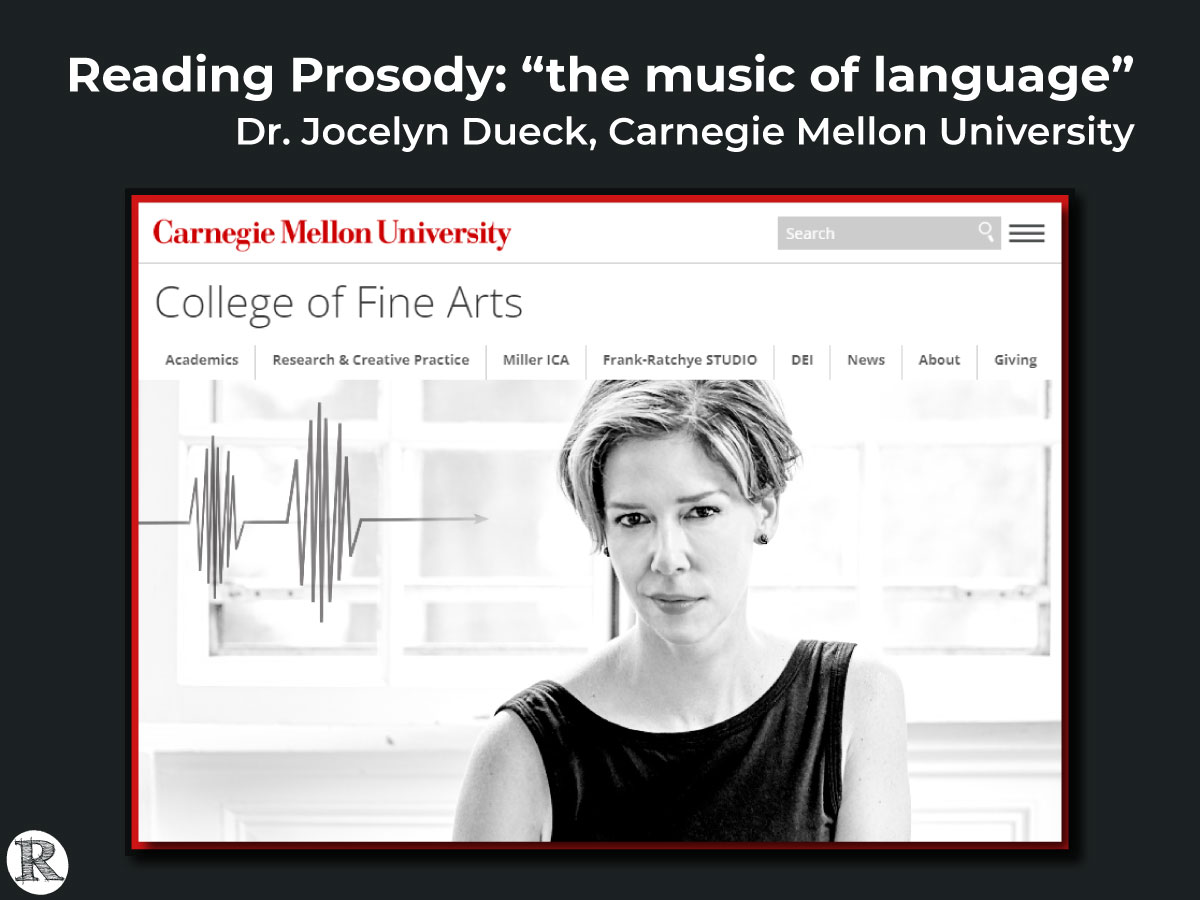Prosody in Music and in the Readability Research Lab
Prosody is an important concept in oral reading and also in music. Meet Jocelyn Dueck, who works in the intersection of the two. Dr. Dueck, a pianist and an Assistant Professor of Collaborative Arts at Carnegie Mellon University, is an expert in prosody, “the music of language,” as she puts it. “Prosody, which is measured by attributes such as volume, duration, pitch and rhythm, is the process by which people place stress and inflection in both music and spoken language that makes it understandable and not disjointed.” Prosody is experienced as expressiveness. Good prosody adds an almost musical quality to speech.
Prosody has to do with the emotion and rhythmic structure of speech and how these features contribute to meaning. According to Timothy Rasinski, professor of literacy education at Kent State University, “A growing body of research over the past 20 years has shown that prosody is consistently and significantly associated with reading proficiency. That is, readers who read orally with good expression (prosody) tend to be proficient readers (comprehension) when reading orally or silently.”
In the same way that Jocelyn assesses prosody working with musicians and vocal performers, she is performing detailed assessments of prosody while listening to readability study participants. She adds her extensive vocal and musical training to evaluate the prosody-related aspects of oral reading. She created a rubric with criteria that she uses to listen to a readability study participant reading out loud and score how fluent the reader is in the language. Her insights inform the reading assessments.
Broad interdisciplinary collaboration is key to launching this new typographical readability field. Readability Matters is excited to have Dr. Dueck’s expertise added to the team. She brings a wealth of experience, deep knowledge and a fresh perspective to our work.
“The prosody of the spoken word functions much like music – speech has volume, pitch, duration and rhythm. Whenever we read or speak, we are composers. The key is discovering how to compose with greater ease and fluency.”
-Dr. Jocelyn Dueck
Carnegie Mellon University recently highlighted Dr. Dueck’s participation in readability research working with Adobe, the University of Central Florida and Readability Matters. The data and the tools the team is building will improve digital reading for next-generation reading platforms.
Read the article: Collaboration: At the Piano and the Research Lab.
About Jocelyn Dueck: Jocelyn is an Assistant Professor of Collaborative Arts at Carnegie Mellon University and a subject matter expert in prosody and related auditory coding and data structure. She has a distinguished record of achievement as a practitioner in linguistics, music and language translation. Jocelyn has over thirty years of experience coaching and training others to reproduce and codify sound units, with experience in at least four different languages and multiple English language accents and dialects. She is honored to work with Adobe, Readability Matters, and the University of Central Florida on improving reading for all. Visit Jocelyn’s website to learn more.




